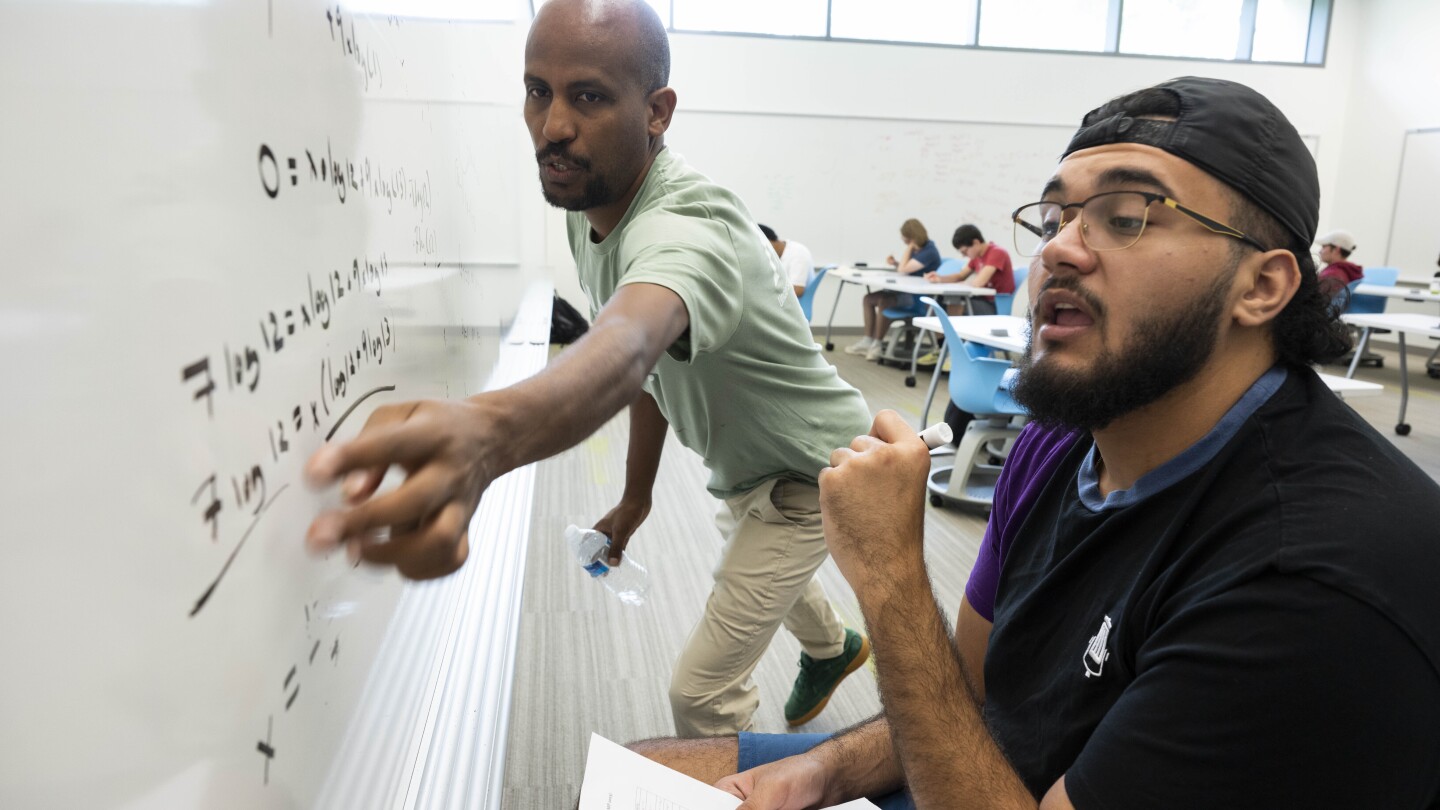- cross-posted to:
- professors@lemmit.online
- cross-posted to:
- professors@lemmit.online
Colleges across the country are grappling with the same problem as academic setbacks from the pandemic follow students to campus. At many universities, engineering and biology majors are struggling to grasp fractions and exponents. More students are being placed into pre-college math, starting a semester or more behind for their majors, even if they get credit for the lower-level classes.
Colleges largely blame the disruptions of the pandemic, which had an outsize impact on math. Reading scores on the national test known as NAEP plummeted, but math scores fell further, by margins not seen in decades of testing. Other studies find that recovery has been slow.



Yeah… I started college back in 2013 and had a roommate that didn’t know order of operations…
I think we’re failing trying to focus too much on quantity over quality. There were tricks I didn’t learn until college that someone should’ve taught me years ago. Things my parents learned that stayed with them for decades nobody ever bothered to tell me, and occasionally either they or someone from their generation would just say something like “9 * something adds up to 9 (e.g.
9 * 5 = 45,4 + 5 = 9)”, “move the decimal place and multiply by two to calculate the tip”, “i before e except after c.”But nope, didn’t learn that, instead I “learned” 3 different ways to do the same thing for solving various algebra situations and at 28 remember none of them. I feel very sorry for the common core kids, I expect them to retain even less with common core’s embrace of this approach. Teaching people multiple ways to do something is great, but ultimately the teacher is going to use one, and they’re going to move too fast for you to translate “their way” into “your way” (at least that was my experience in high school math when I tried to do it a way different than what the teacher was teaching).